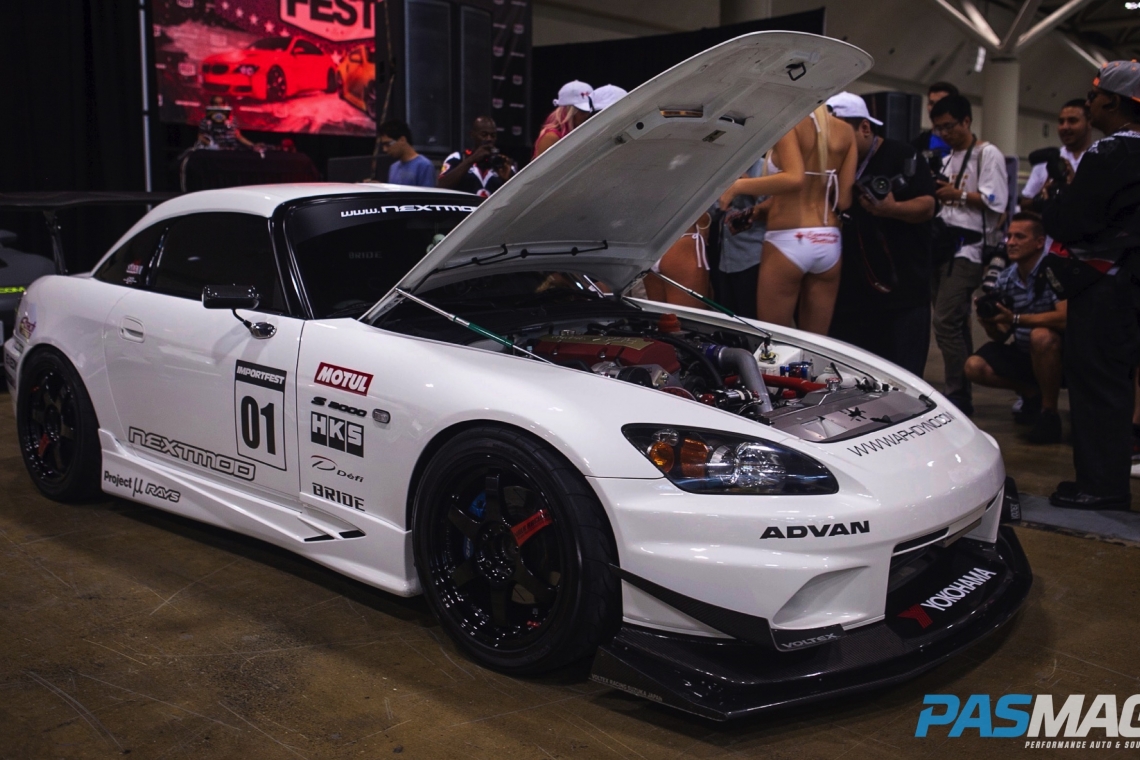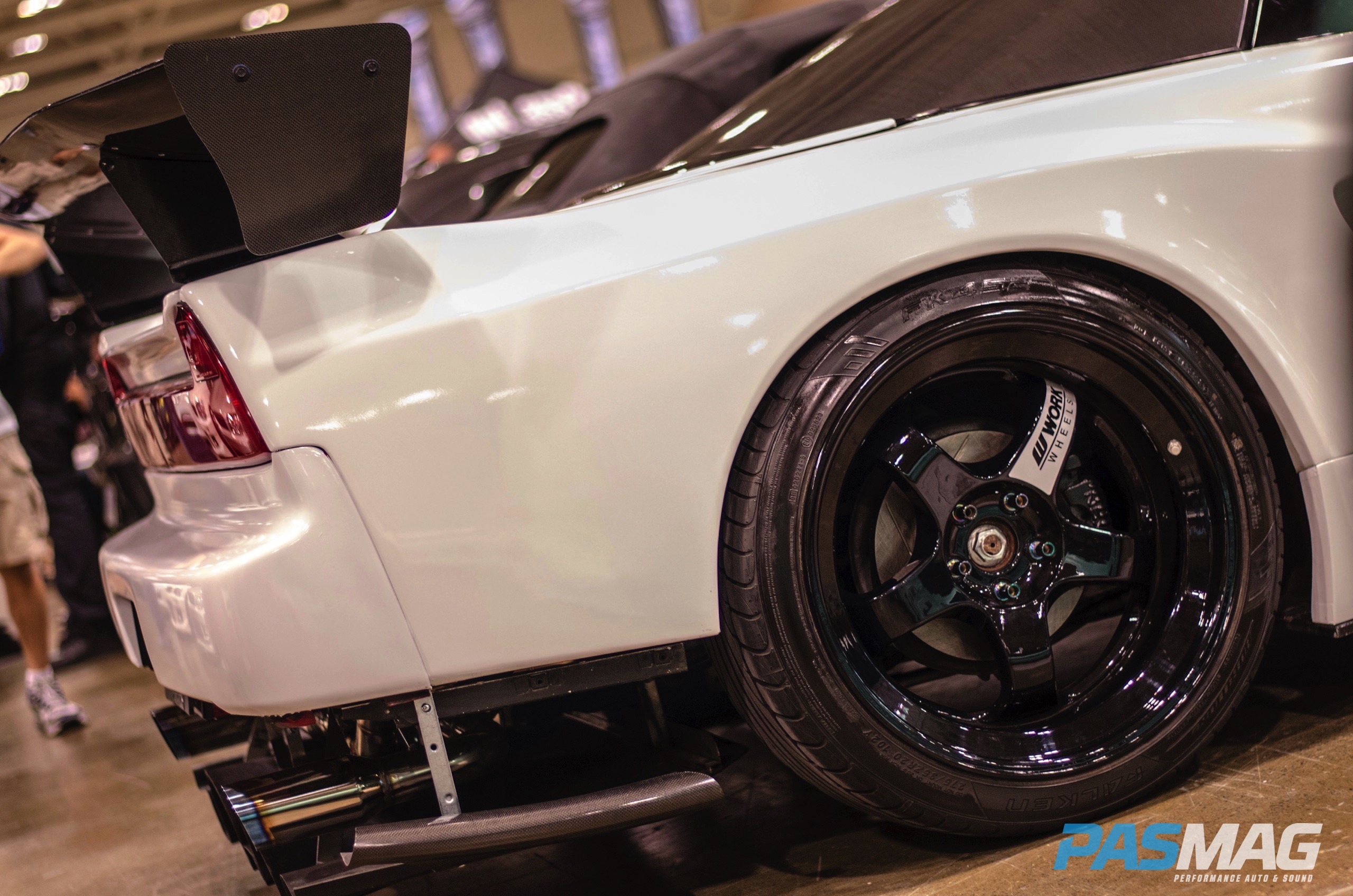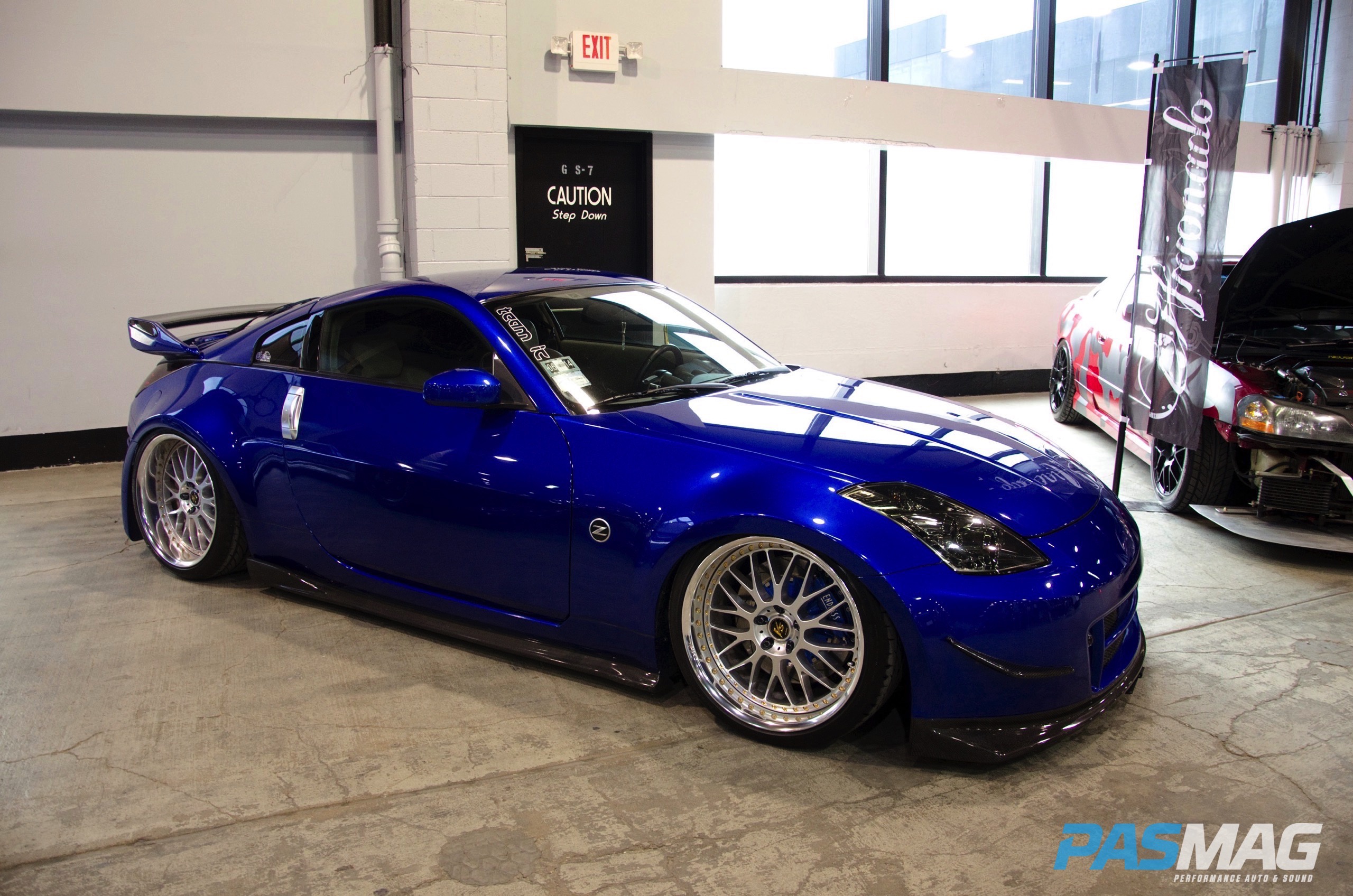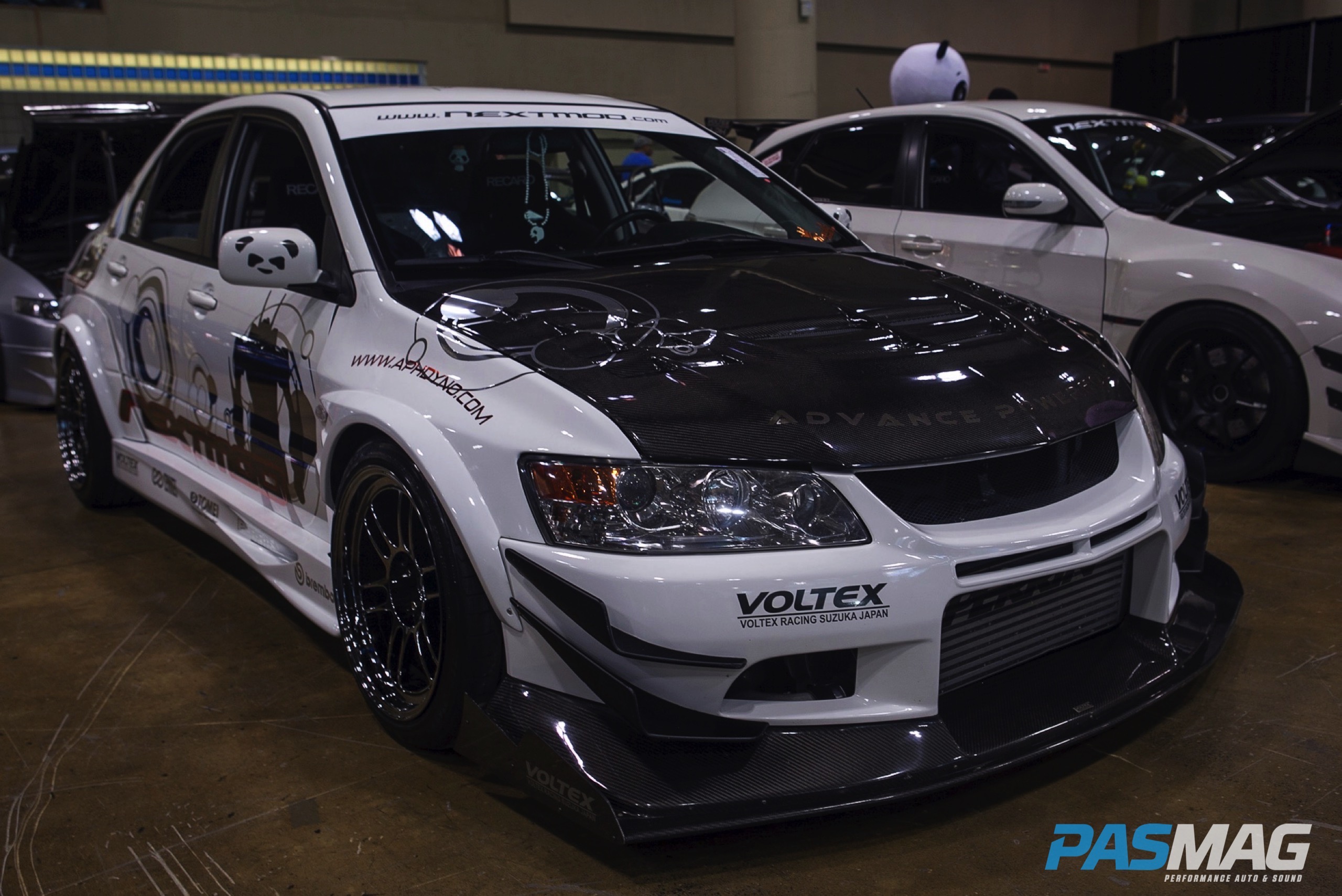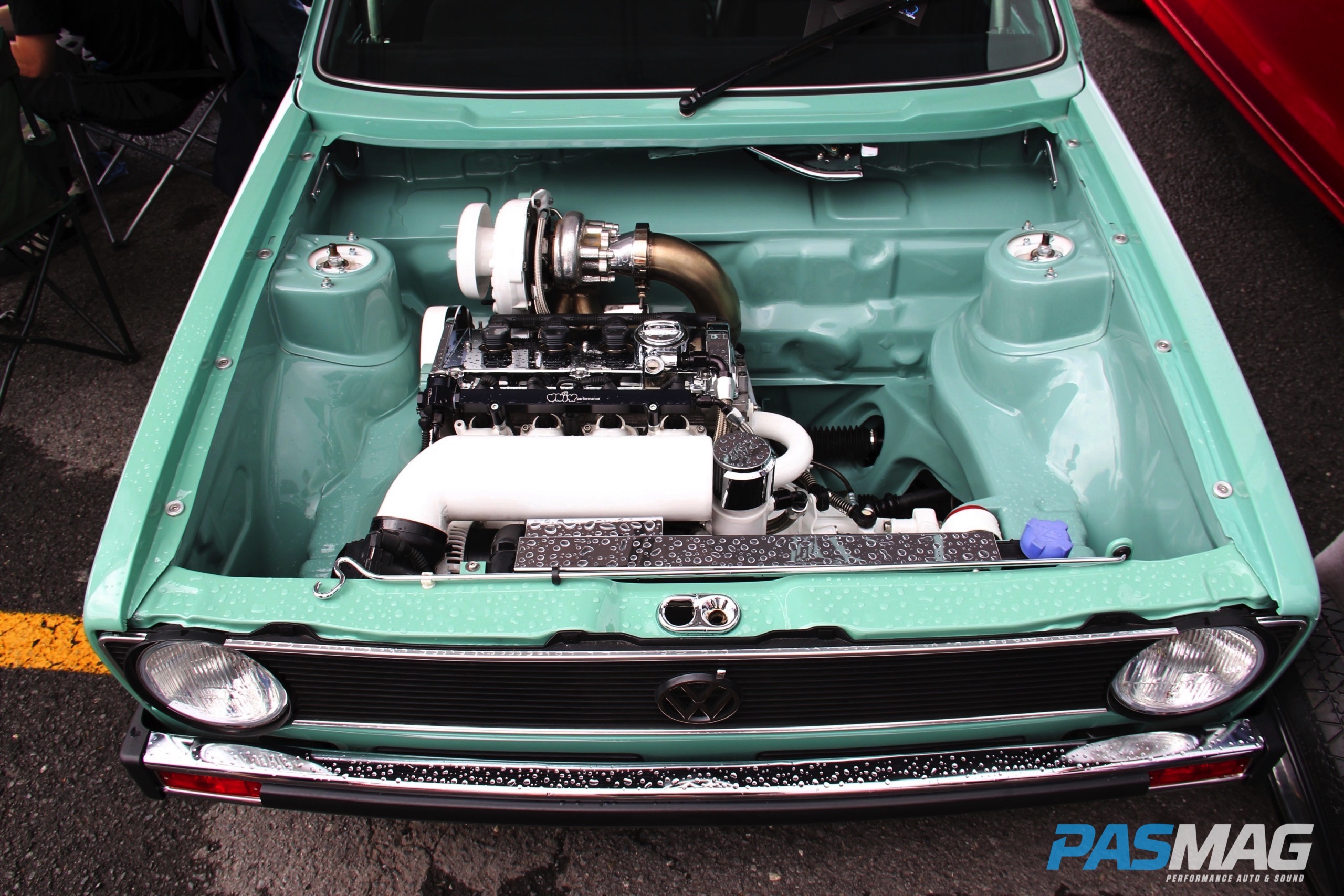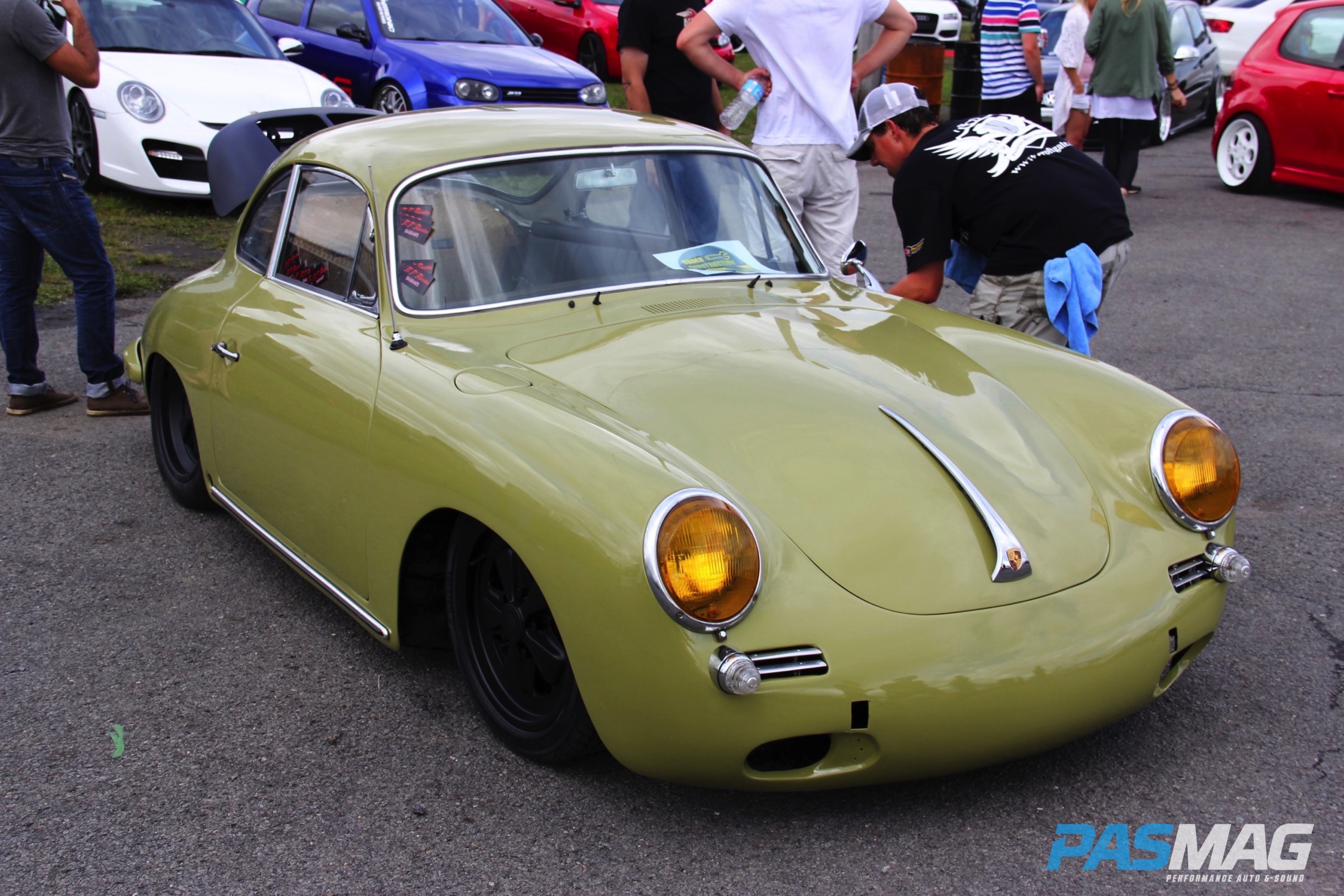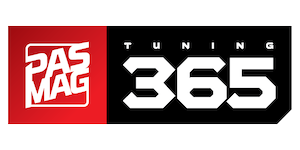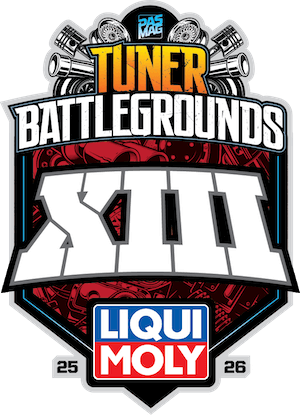We all know the blood, sweat and tears that go into making a car your own.
The countless nights of analyzing parts, swapping, tailoring and tuning them to make sure that everything works — and more importantly — works well while looking good. If you’re the show-car type, you know the added attention to detail and financial and emotional investment that comes with having your decision and craftsmanship judged.
From the judging perspective, the job is equally difficult — representing an organization and making sure you come to the right decisions regarding who wins and who comes second, while covering all your bases and doing so fairly and accurately. For our Style issue it only made sense that we talk with the leaders of the show and judging community from both the U.S. and Canada — which includes former Importfest head judge and operations manager Neal Woon-Fat, Eurokracy co-founder Rick Di Corpo and P-Factor managing director and Tuner Galleria founder Jim Pan — to get the scoop on the judging process and major trends in the industry, especially helpful if you’re involved or considering taking part in the show scene.
PASMAG: How does your judging process work?
Neal Woon-Fat (formerly of Importfest): How cars are scored will differ largely from show to show depending on the audience [Importfest] caters to and the audience they want to appeal to. The judging process, I feel, is a way to define a show and what that show represents.
In terms of creating judging teams, I have always taken extreme care in the selection of judges. The first criteria, whenever I was a head judge and had to select staff, is that they must have [experience building] a notable and recognized car. If a judge has gone through that process they can connect to the competitor and understand exactly what effort it took to get to that point. The basis and underlying principle of every judging system is fairness and audibility. One of the key issues with judging a large show is you will have multiple judges with unique tastes and standards...
The process I prefer, which I have used/implemented at several shows, is to standardize the judging, a score sheet with a score sheet handbook clearly stating the points scoring system for each category removing the objectiveness; and train judges in groups to standardize their scoring with the score sheets and with each other.
Rick Di Corpo (Eurokracy): As the owners, we don’t judge the cars; we have other people judging for us. What we do is give them a sheet with certain criteria — it’s people we know and trust can do it right. In the past, they talk to the owner to get a feel for why they did what they did. It’s more than just painting the car, putting a body kit on. So it’s more about the owner’s story and going around, seeing if what they’ve done on their car — obviously it has to look nice — matches the story.
For this year, we’re going to do things a little differently, where there will be a hand-picked selection of cars, and those owners will have to come on stage to tell their story and have the audience decide. So, we don’t really want it to be like we’re gods picking the winners; we want the people to have a say in their own trophies and their own awards. We don’t want shops to take over the shows, so that’s kind of how we’re levelling the playing field.
Jim Pan (Tuner Galleria): The experiences learned from leading TWC (TUNINGWERKS COMPETITION) on the national car show circuit provided practical insight on event production. Competing at the highest levels through these various car shows since 2002 allowed me to take the best practices from these shows and implement them into Tuner Galleria. We now have the unique opportunity to do things the way they should be done. For example, politics, especially within the judging panel, is something we strive to avoid. We’re sensitive to the fact that politics happen in car shows; it’s natural for there to be friendships and possibly alliances between judges and competitors. One of the ways we try to circumvent that is by not hiring local judges whenever possible, to avoid the drama. It would save us thousands of dollars in travel, hotels, airfare, etc., to hire local enthusiasts to judge. There are qualified local car guys capable of judging in every city. Literally, we fly all of our judges from L.A., guys that have been with me on [Team] TWC or that I’ve known from the industry. These guys understand the way I see things and the level of detail that I look at things. First and foremost, they are car builders themselves. I think that’s a critical piece.
Consistency is the key word here. In Chicago, the judges that we bring out have been with me since 2009 when we started Tuner Galleria, so the expectations are clear. We also assign one judge per car category. That’s a simple way to eliminate issues with differences between judges in how they score.
[For some shows with a long history], the emphasis is really no longer about the cars and the judging; they’re more concerned with producing a lifestyle event which is important, but loses focus on the true car competitor. For Tuner Galleria, we believe a car show should be about the cars first and foremost. As car builders ourselves, we understand the money, the effort, the time, the sacrifices we make to get our cars to a certain level. Out of respect to our competitors, we believe judging is the most critical part of a car show. We want there to be immense pride for competitors who win at our car shows, for the victory to really mean something.
PASMAG: What are some of the key areas to look for in judging a car?
NWF: As mentioned, this will vary greatly depending on the show. For example, a sound audio show will be focused on audio where as a fitment show will be concentrated on wheels and suspension. Shows like ImportFest encompass the whole tuner industry and try to take into account everything, but even when I was at ImportFest we took great time into looking at styles that were trending and where the industry was going and changed key areas that we were looking for respectively.
It’s important for competitors to understand the show they are competing in. With Importfest representing the industry as a whole, one key aspect is that the car needs to be well-rounded. I’ve seen this mistake several times where competitors didn’t realize there were multiple categories on a score sheet, like body, motor, audio and suspension. It's not enough to just excel in one or two categories if you want to win. You need to excel in every category.
RD: It’s different with the European scene because it’s not as flamboyant as the import scene — you don’t have people coming around with giant wings or lights so, for example, the Europ guys will convert their car to, let’s say, not just a European version of that car, but they’ll have a mostly French version. The modifications are so subtle that unless you know, you’ll just overlook it. That’s why it’s important for us to talk to the owners to see what they did and why they did it. It helps us get a better sense of what the car’s all about.
We’ll look if the interior’s been modified, and whether the engine has been modified. Sometimes they’ll do a shaved engine bay. Right now, the whole stance scene is big, but a lot of people don’t do it. But they’re building their own wheels now for example, so we check if they built their own wheels, if they bought them, how well the whole car pulls off the look.
JP: We have a judging score sheet that is segmented specifically into the different categories of the vehicle. They are broken down into every category possible, from engine performance to exterior/interior, undercarriage, suspension, brakes, audio/video, etc. It’s a very well-defined breakdown. In determining the winner, it’s very simple: the car that scores the highest is the car that wins. Realistically speaking, car shows are about visual features — the eye candy. However, we believe in functionality as well. Looking at our score sheet, we have the same emphasis on exterior mods and engine performance. It has to be a complete balanced build.
PASMAG: What are the big trends right now and what do you see in the future?
NWF: Right now, I see the emphasis on stance as being the largest factor at the moment in judging. Stance has always been there and, in the early 2000s, is what really made one car stand out from the other, which might have been almost identically modified.
I see functionality coming back, I see the fat, meaty tire look coming [back], but the biggest trend I see is air ride. The capability of air ride and its progress — I see it eventually eliminating the traditional spring/shock coil in all applications.
RD: I’ve noticed the whole scene has been moving away from being flashy and in your face to being just more functional. A lot of people don’t really put wings on their cars; they don’t do these things anymore. I’ve noticed that even in the Volkswagen scene; people are just going more toward subtle modifications.
The events that are able to adapt and keep up with the times are the ones that are getting more attraction. If you’re talking about Waterfest versus H2O [International], H2O has ballooned over the years, partly because of the community that helped move it along. They have air ride meets and stance meets, versus Waterfest, which doesn’t have that. So we’ve tried to incorporate a bit of those things with Eurokracy.
JP: From an overall trend perspective, stance, classic Japanese cars and bolt-on wide fender kits are what I see as being popular these days. In the show scene, gone are the days of building full show cars, especially with all the crazy fiberglass for interior and audio. Kids now aren’t building their cars in the same way we were building them when the car show scene itself was extremely competitive, all the way up to 2005-06. From 2007 onward, with the downturn of our U.S. economy, things changed dramatically for the scene. Now kids are happy buying replica parts or whatever they can obtain the cheapest. They are upset if they don’t win competing against a similar car with authentic parts. It’s just a whole different thing. For us, supporting manufacturers that continue to spend countless dollars on research and development is important. This innovation is what drives our industry forward. We believe in authentic, quality parts and feel strongly that car competitors should understand the difference.
For the future, it is my hope that other car show series can come back to the roots, hosting events where cars are the focus and judging is the priority. If all of us in the production of these shows can just commit to that one endeavour — on creating show experiences where winning has meaningful significance and actually matter because the judging is on point. Then I think we will see car shows flourish again.
PASMAG: What’s your opinion on the stance trend?
NWF: [Stance] is a trend in terms of the extreme fitment. What I mean is that stance has always been here but now, as with every good thing, the scene tends to over do it. I like to draw parallels with the large GT wings from back in the day; the guy next door would get a wing, then the next guy would get one slightly bigger to one-up him, and someone else would get an even bigger wing to up them, always comparing it only to what was done previously, until one day that last wing is so large that they get compared to the original and the whole trend just topples. With the ultra extreme cambers I’m seeing now, I can see stance taking the same trip. The bar will move back to functionality.
JP: I think stance as it relates to the import scene is definitely unique relative to other car enthusiast groups. Personally, I’m not a fan of that flush look with extreme camber as it’s simply not practical. I still believe that function is most important so, typically, Tuner Galleria is not the type of show that attracts the extreme stance crowd.
The extreme stance movement won’t last. When we look at the overall landscape of our industry, it certainly is an interesting blip in our history, but I don’t really see it lasting beyond the next year or two.
PASMAG: What areas of the car would you tell one of your potential show builders to focus on?
NWF: For novice builders, have a plan and sketch it out. Then take your time and build your project with quality parts, and make sure they are the proper parts according to your plan. Never settle on parts [that are less than adequate].
RD: Don’t build a car to be famous. Don’t build a car for someone else. You have to build it for yourself. If you build it for yourself and you can show it and talk about it, chances are you’ll have a good chance of winning. If you’re building a car to be famous on the Internet, you’ll have your two weeks of fame, but someone else will come along. It’s just got to be real. If it’s real you’ll do something for yourself and people can follow your story.
JP: It has to be a balanced build, with emphasis on exterior and performance mods. My personal style leans towards functionality. It’s great to have an RWB Porsche 993 or 930, but if you don’t have the power to back up those looks, then it’s really not a balanced build. Ultimately, build the car for your own satisfaction, showing off your creativity and sense of style.
Related Articles
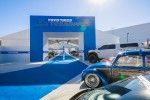 SEMA 2025 Preview: Toyo Tires Treadpass Returns
SEMA 2025 Preview: Toyo Tires Treadpass Returns
 What Should We Look For At SEMA 2025?
What Should We Look For At SEMA 2025?
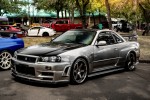 Tuned Originals Takes Over Sneaky Pete’s
Tuned Originals Takes Over Sneaky Pete’s
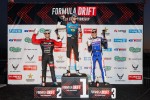 Formula DRIFT Utah 2025: Deane Clinches Championship Early
Formula DRIFT Utah 2025: Deane Clinches Championship Early
 August Event Calendar 2025
August Event Calendar 2025
 Formula DRIFT x Tuning365 St. Louis 2025
Formula DRIFT x Tuning365 St. Louis 2025


